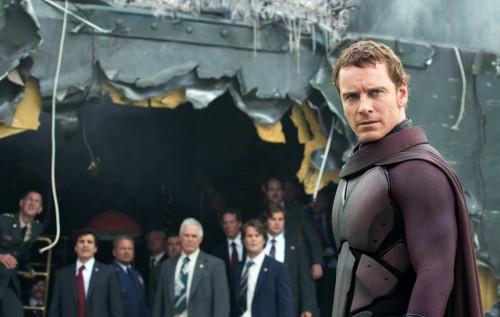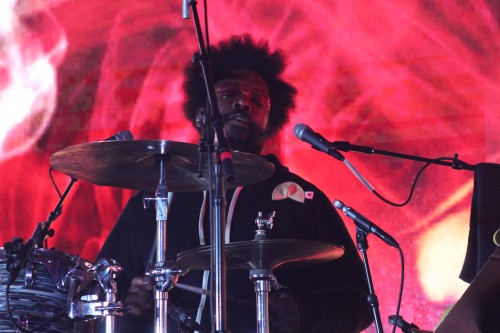By Greg Popil
There are compelling arguments to be made for naming any number of movies the “greatest” of the 21st century thus far (I personally would go with “The Prestige.” Feel free to rant at the idiocy of this choice at your leisure), but as for what film is the most influential of our young millennium, that list seems to begin and end with 2000’s “X-Men.”
People remember 2002’s “Spider-Man” and 2005’s “Batman Begins” as the movies that began the comic book fueled revolution that has overwhelmed the mainstream movie industry, but in truth, it was Bryan Singer’s take on the mutant series that ushered in an era of superheroes that were not cheap caricatures in silly costumes. Its influence was not just in the superhero field; anyone who remembers suffering through any late ’90s summer movies remembers how little care studios once gave to acting, writing or continuity, culminating with the passionately vitriolic backlash to “The Phantom Menace.”
Then, less than a year later, “X-Men” debuted to comparatively little fanfare, and did something wholly unexpected: it gave audiences a credible story, a cast of actors that were well-suited for their roles (in the case of Patrick Stewart, the one actor for whom comic book fans had been begging), and in Singer, a credible director with at least one modern masterpiece under his belt, “The Usual Suspects.” The movie was not flawless or truly spectacular, but it didn’t have to be. It was competent, and competence was what audiences were starving for. Since then, the X-Men have ridden that competence to a reliable franchise (seven movies in 14 years), with movies that are the film equivalent of AC/DC albums. Some are clearly better than others, but you know exactly what you’re going to get: good acting, fun set pieces, a grimly serious attitude and a bunch of mutants with cool powers, with the shrnk! sound of Wolverine’s claws in place of Angus Young’s guitar solos.
Which brings us to the seventh movie in the franchise, “Days of Future Past.” If the franchise up until now was as reliably straightforward as AC/DC, this is their King Crimson moment: darker, more complex, yet still able to come up with some killer riffs. Set 10 years in the future, “Future Past” imagines an apocalyptic future where mutants and their allies have been driven to the edge of extinction by Sentinels, an adaptable race of machines designed to hunt down and murder anyone with mutant DNA. The design of the future borrows heavily from the Terminator movies (it even opens up with a shot of one of the famed mountain of skulls) so it’s no surprise that eventually time travel also enters the equation. Desperate to end the war, the now reunited Professor X and Magneto (Patrick Stewart and Ian McKellen, of awesome Instagram fame) hatch a plot to send the consciousness of Wolverine (Hugh Jackman) back into his own younger body (which barely ages) in 1973, to stop the war before it even begins. Once in the past, it’s up to Wolverine to reunite the younger Professor and Magneto (James McAvoy and Michael Fassbender) who still hate each other in the wake of the incidents of “First Class.”
If “First Class” existed primarily as a showcase for Fassbender’s excellent portrayal of the Holocaust-scarred Magneto, “Future Past” is McAvoy’s time to shine. Professor X has always been a supremely confident figure of leadership in the X-Men movies, both before and after this point in the timeline, so it’s a shock to see him haunted and unsure of himself, miraculously walking again but running from the powers which he’s so staunchly championed in the other movies. McAvoy, competent but unimpressive in “First Class,” digs deep into the Professor’s psychological scars, and the movie wisely does not let him entirely off the hook for doing nothing in the face of Trask’s experiments over the last decade, which resulted in the horrific deaths of many of the “First Class” cast.
The key to stopping Trask and the future war lies with Mystique (Jennifer Lawrence), whose murder of Trask would set the apocalyptic timeline in motion. The elevation of Mystique’s character has more than a little to do with the happy accident of having America’s Sweetheart under contract for a sequel, but Lawrence still nails the nuances of the role, neither interested in the Professor’s pacifism nor Magneto’s all-out war plans. The pain of being different has always been the undertow of the mutant story, and no character emphasizes that more perfectly than Mystique, who can look like anyone but desperately wants to be accepted as she is.
And no one helps to convey that alienation better than Singer. Director of the first two X-Men movies, he has yet to be topped when it comes to getting under these characters’ often impenetrable skins (Note: it’s difficult to mention Singer without addressing the horrific crimes of which he is being accused. As no verdict has been rendered and I’m not on the jury, I’ve done my best to not let the charges cloud my judgment of the film). It’s a testament to the cast’s faith in Singer’s storytelling abilities that he was able to get name actors like Halle Berry and Anna Paquin to return for what amount to glorified cameos.
“Future Past” isn’t flawless: interesting characters like Ellen Page’s Kitty Pryde and the wormhole-creating Blink (Bingbing Fan) are given the short shrift in order to continue the story of long-established characters like Wolverine, and there are still a few unresolved plot holes in the series (hoping to find out how Professor X got his physical body back after it was obliterated in “The Last Stand?” Well, have fun with that). But those are small nitpicks. “Future Past” marks a new high for the series, and by settling the choppy continuity of the last few films, establishes the X-Men as the only superhero series that can stand up to the Marvel onslaught over the next few years. Its influence won’t be as widespread as the initial “X-Men,” but it will be remembered all the same.
Rating: 74/81




Leave a Reply